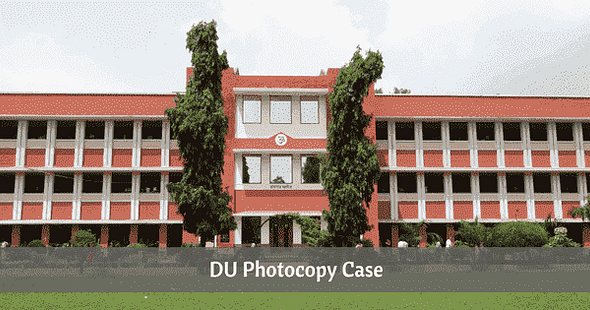
The Delhi High Court ruled that according to the Indian Copyright law, copyrighted material can be photocopied for educational use. The verdict was passed on Friday, December 9, 2016 and also mentioned that there was no restriction on the amount of the book that can be photocopied as long as the course demands were justified.
Also Read: UGC: Educational Institutes Prohibited to keep students' Original Documents
The appeal was filed by 5 international publishers including Cambridge University Press, Oxford University Press, Cambridge University Press India Pvt. Ltd., Taylor & Francis Books India Pvt. Ltd. and Taylor & Francis Group, UK. A 58-page judgement was passed by bench of Justice Pradeep Nandrajog and Justice Yogesh Khanna. A single bench decision had earlier dismissed the case against DU-based Rameshwari Photocopier for copying copyrighted material and preparing ‘course packs’ from it.
Although the bench has clarified that copying of material is within the bounds of the law, the single bench has been asked to conduct a trial and study all the facts to determine whether the course packs being sold by Rameshwari photocopiers were justified according to the existing syllabus or not.
The court also supported the argument put up by the students and academics organisations that photocopying of expensive books for educational and learning purposes was justified as it contributes to the cause of public education. Further stating that students are less likely to purchase the reference books and are not the potential customers of the publishers, the court said that photocopying of such reference content will not affect the market or sales of publishers.
The case has been sent back to the single bench, and the Delhi HC has refused to issue a stay notice on the work done by the photocopy shop. However, the photocopy shops have been asked to maintain a record of the content that is being copied and course packs that are being provided to students.
Also Read: DU Topper Struggles to get her Gold Medal
Senior Advocate Neeraj Kishan Kaul represented SPEAK in this case and said that more that 95% of the arguments made by the students and academia were accepted by the court. This is a very essential development in the case as most of the students depend upon photocopied course packs as reference course material.


 Follow us
Follow us













